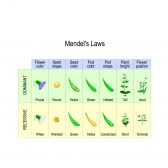Definition
noun
A form of conditioning or associative learning first demonstrated by Ivan Pavlov (a physiologist, psychologist, and physician) in which a neutral stimulus and unconditioned stimulus when paired a number of times will in time cause the neutral stimulus into a conditioned stimulus that elicit a behavioural (often reflexive) response to it, whether it is paired or unpaired with the unconditioned stimulus.
Supplement
In Pavlov’s experiment he demonstrated that using a bell sound (neutral stimulus) to call the dog for its food (unconditioned stimulus) for a couple of times will cause the dog to salivate every time he calls the dog using that bell sound (conditioned stimulus), with or without food (unconditioned stimulus).
The different types of classical conditioning are:
- forward conditioning
- delay conditioning
- trace conditioning
- simultaneous conditioning
- backward conditioning
- temporal conditioning
- unpaired conditioning
Synonyms:
See also:
- conditioned response
- unconditioned response
- conditioned stimulus
- unconditioned stimulus
- neutral stimulus







